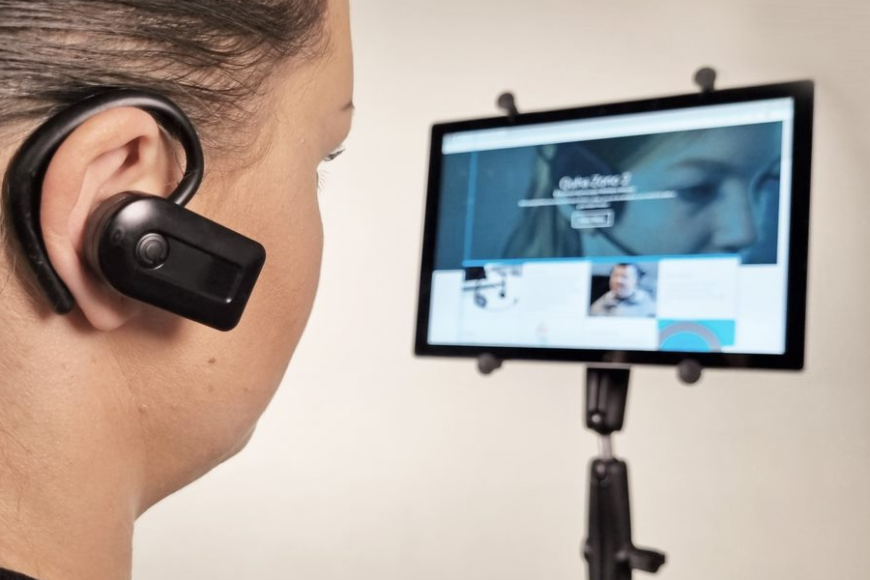Introduction
Assistive mice include gyroscopic mice, eye-tracking mice, head-tracking camera mice and joysticks.
Quha Zono X is a head mouse used by people who can’t use desktop mice to operate a computer. Standard mouse activities are possible with the user’s head movements that move the mouse cursor onscreen. A typical user is a person who has functional hand movement restrictions because of a disease or an accident. Quha Zono X is a standard Bluetooth® mouse.
More information about Quha.
What and why?
The amount of research available for comparing different assistive mice is limited. It is important to understand when certain types of mice are feasible, their strengths and weaknesses, what can be done with them, and who they are suitable for. These are things you can focus on if you are interested.
Part 1: Independent Accessibility Project Work (5 credits)
The project work covers topics such as:
- A summary of different assistive mouse types.
- The strengths and weaknesses of different assistive mice.
More information about project work.
The project will be written in English and supervised by the TACCU.
Part 2: Master’s thesis (30 credits)
The thesis work covers topics such as:
- A summary of different assistive mouse types.
- The strengths and weaknesses of different assistive mice.
- What suitable mice are for different users based on their medical diagnoses?
- Access method impacts the user during long-term use, e.g. fatigue or discomfort.
- What kind of devices can be used with the mice? For example, desktop computers, tablets, smartphones, etc.
- What kind of software should be used with the mice? For example, games, standard user interfaces, and operating systems.
- Required supporting software to utilise the mice? Accuracy, clicking, scrolling, delays.
The thesis will be written in English.
Quha grants a stipend of 500 EUR for the thesis writer. Work will be supervised both by Quha and the TACCU.
Further possibilities
Possibility to extend the thesis work by writing peer-reviewed research articles with the TACCU research group.
Contact
If you are interested and need more information, don’t hesitate to get in touch with Pauliina Baltzar or Tero Avellan by email: pauliina.baltzar@tuni.fi or tero.avellan@tuni.fi

